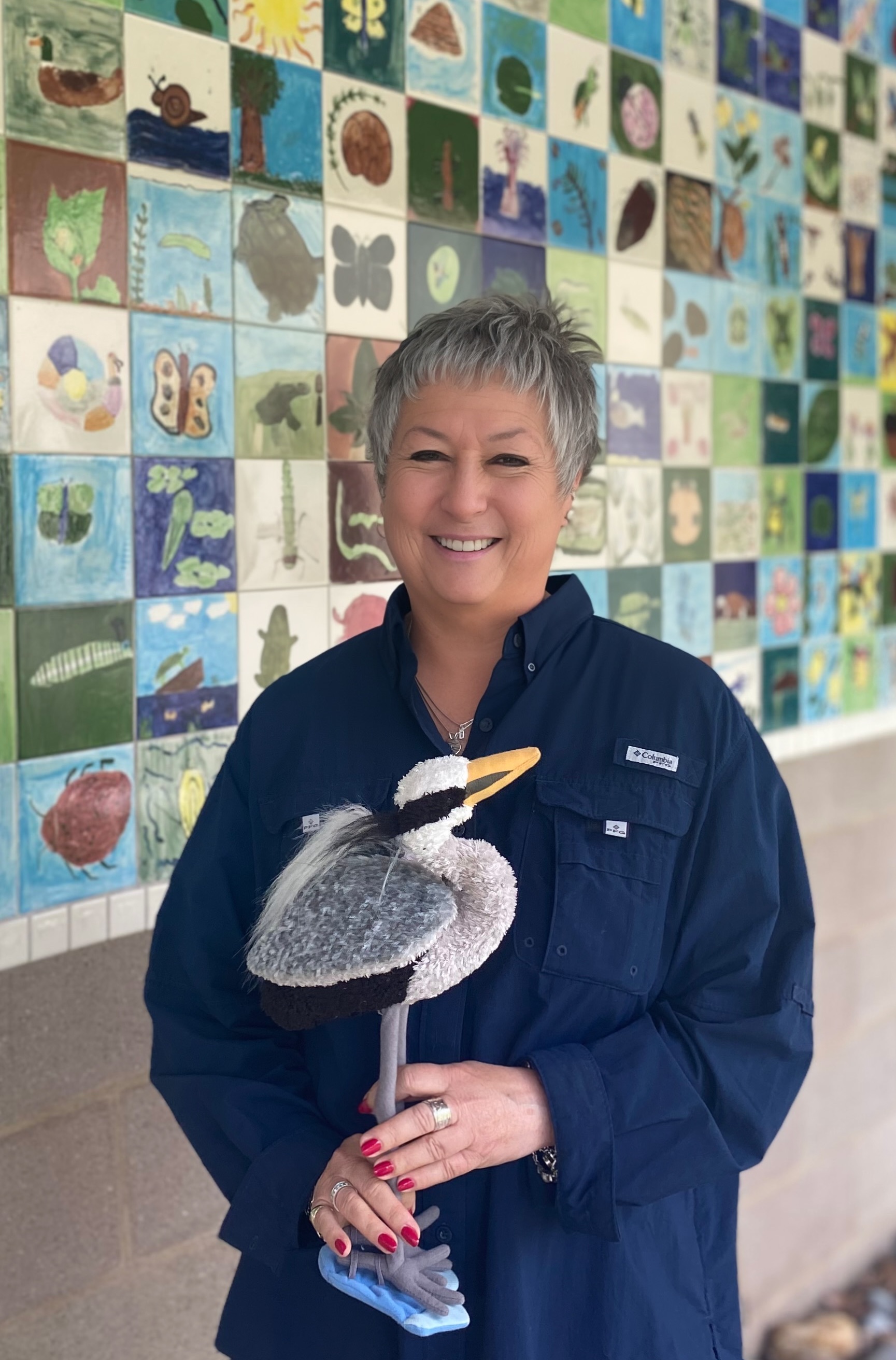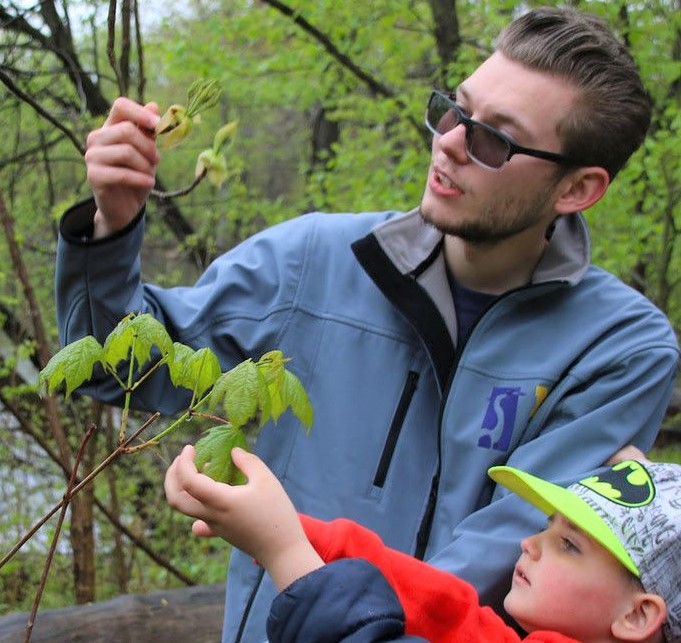McLeer also has participants touch tree bark and make observations. They search for wildlife tracks and guess what animal may have made them. They listen and look for birds. Interpretive techniques are based on revelation. “Brain-based research shows that If you are able to use your senses and connect new knowledge to things you already know, it helps you make connections in a way that ties in experience and emotion,” McLeer said. “Relating information to students’ lives so there is meaning to the new information, makes it relevant to their lives. Emotional connections are stored in the brain’s long-term memory.”
McLeer’s such a natural (pun intended) that it seems like she always knew this was the right path for her. But she said she didn’t discover the environmental education field until she was an adult in her 30s. Working in retail and studying at Oakland Community College to be a teacher, she attended a Detroit Audubon awards event — fate would have it that she unknowingly sat at the same table as awardee William B. Stapp, the UM-Ann Arbor professor emeritus who is considered the founder of environmental education.
“I told him that I was studying to be a teacher and hoped I could teach science. Then he put two words together that I never heard in a sentence: environmental education. He explained to me what it was. It was a light that went on for me,” said McLeer, who said the field places an importance on educating all ages about their environment in an effort to develop a respect for nature and preservation. “That conversation was on a Saturday night. On Monday, I was in my school counselor's office changing my plans.”
McLeer learned about the UM-Dearborn environmental studies program started by Professor Orin Gelderloos and transferred. She first worked as a student naturalist and then became a full-time staff member after graduation. McLeer has since earned her graduate degree, along with publishing chapters in books, giving public lectures, teaching college classes and leading educational programs around the campus’ 120-acre Environmental Study Area.
During 2023 alone, more than 4500 K-12 school children have attended programs McLeer helped run. After a tour on May 22, third grader Joey from St. Pius Catholic School drew a picture of cattails, thanked McLeer for the fun walk and even pledged to become a future Wolverine. He wrote, “I already wanted to go to UM-Dearborn and now I will definitely go.”
McLeer said helping kids explore the outdoors is a highlight in her role. With climate concerns and species extinction, McLeer said it’s important that the next generation see how their actions can impact the world around them. To help do that, McLeer also inspires minds in her UM-Dearborn college classroom to find entertaining and efficient methods that blend science and education so that future educators can bring forth that awareness.
Alum Griffin Bray is part of the upcoming generation of professional naturalist educators. He met McLeer when he was nine years old as a participant in the EIC’s Young Naturalist Program in the mid-2000s. McLeer led many of his adventure-filled sessions.
He’s the one who nominated McLeer for the Distinguished Professional Interpreter Award.








